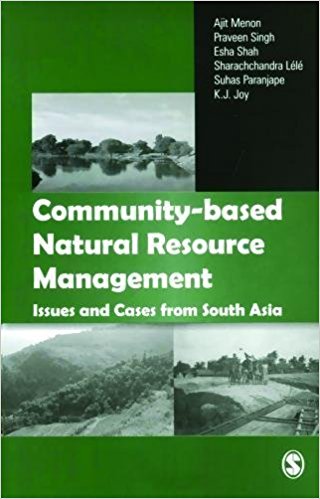A ground-breaking attempt has been made to capture the dynamics of community-based natural resources management and related issues, particularly the non-governmental organization (NGO) driven developmental initiatives in this area. The book makes an effort to analyse an important component of natural resources management viz., water, detailing the experiences of NGO-supported measures in three South Asian countries—India, Bhutan and Bangladesh. The book is divided into eight chapters. The first chapter, giving an account of the origin of community-based natural resource management and its components, recounts briefly the community-centred discourses at various point of time, NGO-driven resource management related debates and how they became part of government policies in different countries of South Asia. Further, the authors have also introduced the scope of the study, framework, research questions and methodology along with a short account about the study areas.
Six case studies were presented—four in India (Watershed development in Hivre Bazar, Maharashtra; Uttan’s watershed development work in Nathugadh, Gujarat; Tarun Bharat Sangh’s revival of water-harvesting structure in Gopalpura, Rajasthan and Multi-sectoral work in Paudi Garhwal, Uttarakhand), Lingmuteychhu watershed in Bhutan and sustainable environment management programme in northern Bangladesh. The second chapter narrates the story of how the process of social transformation in the Hivre Bazaar village helped the success of watershed projects which in turn had accentuated economic growth in terms of increase in wages, productivity, area under cultivation and sufficient drinking water, etc.

